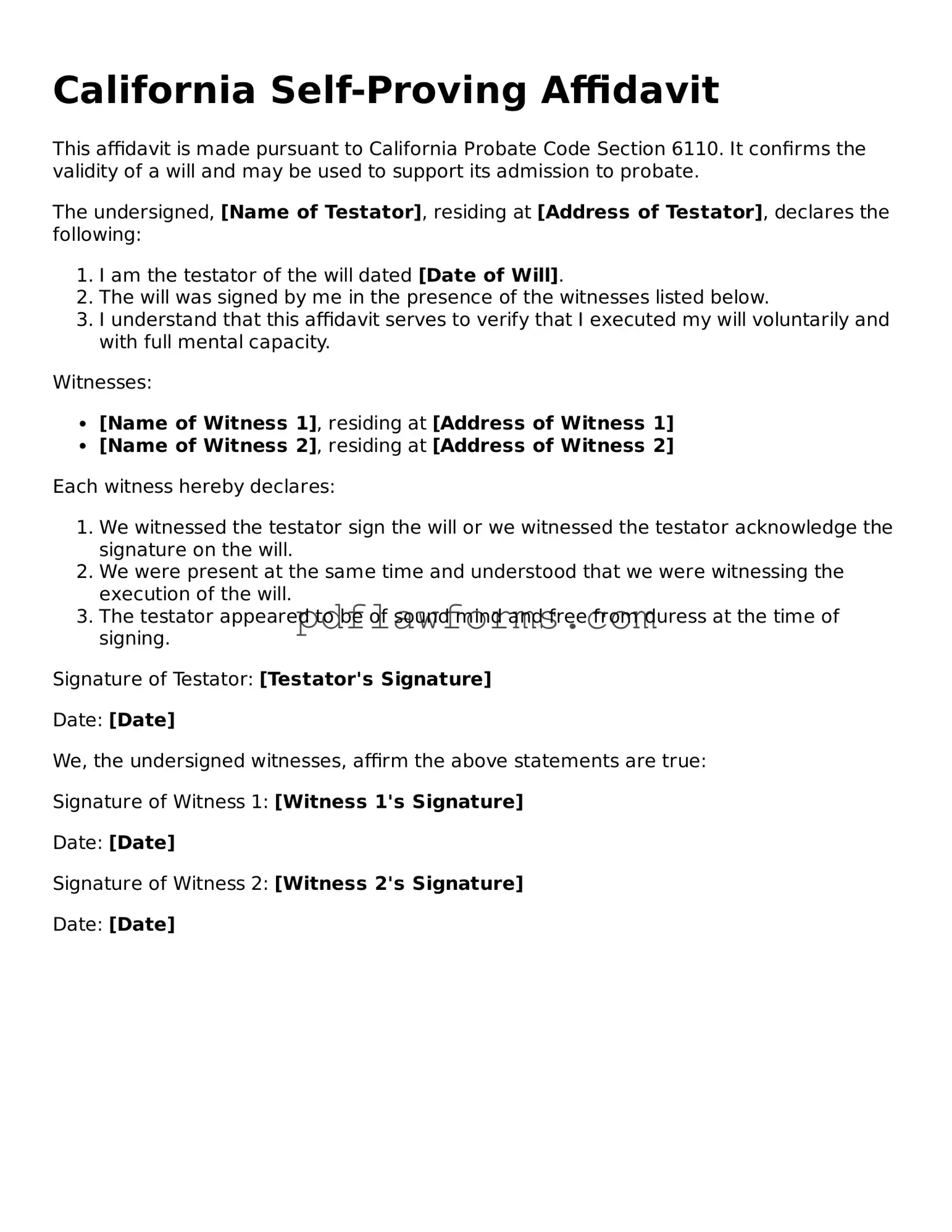Self-Proving Affidavit Form for the State of California
The California Self-Proving Affidavit is a legal document that allows a testator's will to be validated without the need for witnesses to testify in court. This form streamlines the probate process, ensuring that the testator's wishes are honored efficiently. Understanding its significance can help simplify estate planning for you and your loved ones.
Ready to fill out the form? Click the button below to get started!
Make My Document Online

Self-Proving Affidavit Form for the State of California
Make My Document Online
You’re halfway through — finish the form
Edit and complete Self-Proving Affidavit online, then download your file.
Make My Document Online
or
⇩ Self-Proving Affidavit PDF
